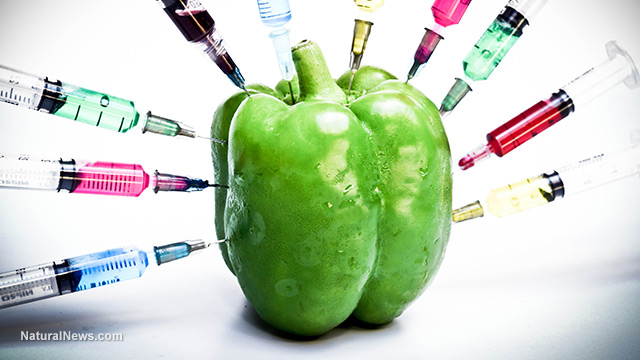Venezuela passes new law rejecting GMOs and seed patents nationwide

(NaturalNews) In 2004, President Hugo Chavez prevented the planting of 500,000 acres of Monsanto's genetically modified (GM) corn. Since then the Venezuelan farmers have been expressing strong feelings against growing or buying GM seeds.
However, this didn't stop big corporations from trying to push their transgenic crops through in times of economic and political disturbance. A seed law proposed by a pro-government legislator in 2013 was about to open a backdoor and allow GM seeds to enter Venezuela.
Luckily, farmers and environmental movements stood up to them and demanded a complete re-write of the Seed Law.
After fighting a two-year long battle against the approval of transgenic seeds, Venezuela's National Assembly finally approved a draft Seed Law aimed to protect food security, soil fertility and promoting sustainable agriculture, instead of creating a backdoor for the spread of GM seeds.
The new law is a big win for the people, farmers and environmental activists, who have long been on a mission to help pass the law and prevent companies such as Monsanto, Bayer and Syngenta from supplying and controling the seed and food supply in their country.
Ban on GMOs and seed patents
The new law calls for strict regulation of all hybrid seeds and will prevent research, production, import and distribution of all GM seeds to protect small farms as well as human and environmental health.
It promotes sustainable agriculture, as its foundation is to to protect food security and aid rural development.
"In Venezuela, we have the capacity to produce our own seeds," states director Arnaldo Vasquez, of the Ezequiel Zamora Foundation, who attended the National Assembly session in order to advocate the law's approval.
The law has been the result of years of collective grassroots efforts and public consultation.
Seed Law in a nutshell
• Seeds cannot be patented, nor can they be hybridized through biotechnology or cross-contamination by genetically modified seeds.
• A National Seed Institute, or seed controlling system, will be created to regulate, audit and control the quality of imported seeds to prevent and punish all violations against the GMO ban.
• Sustainable and natural agriculture methods – such as natural cross-breeding, seed saving and sharing – will be promoted.
According to local activists, the rejection of the Seed Law would have caused major issues for Venezuela's agricultural sector in terms of soil fertility and the well-being of small, local farms.
Eisamar Ochoa of Venezuela Free of Transgenics stated, "This is a law that, more than prohibit the use of transgenics and the use of agrotoxins – which are highly polluting – it purports to strengthen, make visible, claim, and make our campesina (heirloom) seeds as the base of our food sovereignty."
Venezuela is a beautiful example of the strength of the people. Multinational corporations and some politicians with interests in the GM industry, did try to take advantage of the economic and political instability to create a fear around food shortage and hunger to push their agenda through.
Fortunately, the Venezuelan farmers, activists and people held their ground and were able to reject the multibillion dollar companies from getting a foothold in their country.
Sources for this article include:
Coha.org
GMWatch.org
Venezuelanalysis.com
SustainablePulse.com
Learn more: http://www.naturalnews.com/052550_Venezuela_html#ixzz3waPwS1TwGMOs_Seed_Law.
This Forum message belongs to a larger discussion thread. See the complete thread below. You can reply to this message!
-
Venezuela passes new law rejecting GMOs and seed p...
 InCharge
8 y
229
InCharge
8 y
229
This is the position of the above message within the thread.
CureZone Newsletter is distributed in partnership with https://www.netatlantic.com
Contact Us - Advertise - Stats
0.078 sec, (4)

